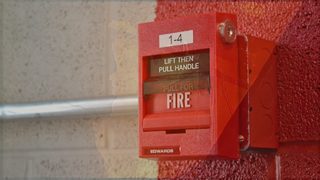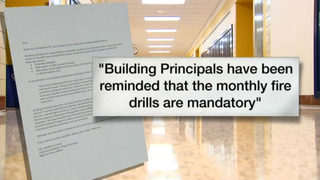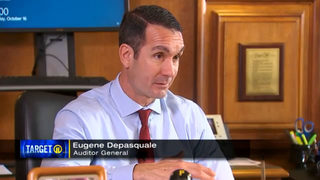When parents send their children to school, they want them to be safe. Part of how schools work to keep children safe, even in an emergency, is by conducting fire drills to practice procedures.
But Target 11 has learned that some schools are holding drills when students and teachers aren't even in the building.
Pennsylvania state law requires all public schools to hold one fire drill each month. The fire drills are designed to make sure students know what to do in case of an emergency.

But Target 11 found schools at Pittsburgh Public Schools that held drills over vacations, on weekends, and even in the middle of the night.
Under the law, each district must keep a log of the fire drills it has conducted, and must submit paperwork to the Pennsylvania Department of Education saying that the drills were done in accordance with the law.
Target 11 requested, and spent months examining, the logs for Pittsburgh Public Schools.
Those logs showed most of the fire drills had been done, but a closer inspection revealed troubling information: by comparing dates and times, Target 11 found some of the drills were done without any students in the building.
TRENDING NOW:
- One person killed in apartment building fire in Port Vue
- Former Duquesne basketball player charged with rape
- Couple who survived Las Vegas shooting killed in a car crash
- VIDEO:Two Class-Action Lawsuits Pending Against LuLaRoe
Of the 21 fire drills held over two and half years at Morrow Intermediate, nine were done over breaks, on weekends or times when no students would have been in the building, such as 11:45 p.m.
Target 11 found a similar pattern at Brashear/South Hills Middle School, where eight drills over a two and a half year span were held when no children were at school.
"When we receive information of situations as you are describing, we investigate it, and the first question we ask is why did this occur," said David May-Stein, the chief of school performance for Pittsburgh Public Schools.

May-Stein blamed some of the missed drills on bad weather during winter months, and said when students were not present for a given drill, they still tested the alarm system. While that may be the case, that does not comply with state law.
The law requires "...all public schools to conduct fire drills not less than once a month. The drill shall include the complete removal of pupils and teachers."
In Washington County, the Washington School District has not missed a drill in the last year.
"It really is a top priority. It is an aspect to ensure safety for our students," said James Konrad, the district's superintendent.
Some school districts are better than others at complying with the law. At Norwin High School, only five fire drills were held over the 2016-2017 school year.
In an email to Target 11, the District blamed the canceled fire drills on inclement weather and academic testing. The email from District Superintendent William Kerr said "building principals have been reminded that monthly fire drills are mandatory."

In addition to strange times and dates, Target 11 found discrepancies in the data held in Pittsburgh Public Schools' fire drill logs. The data listed for January 2016 was identical to the data for January 2015, including typos.
Tonight at 5, target 11 exposes schools holding fire drills with no students in the building. #wpxi
— Rick Earle (@WPXITarget11) October 30, 2017
Despite the discrepancies, Pittsburgh Public Schools said they have never gotten any feedback from the state.
In the last year, the Pennsylvania Department of Education has begun working with the Pennsylvania auditor general's office to better ensure fire drills are being done properly. The Auditor General's office will begin reviewing the logs as part of their audits of schools.
Target 11 took the fire drill log discrepancies to Harrisburg and sat down with the Auditor General to discuss the issue.

"I think it's inexcusable when you're talking about something that could potentially put lives in danger," said Eugene DePasquale, the Pennsylvania Auditor General. "I mean, having a fire drill on Thanksgiving Day does little good for anybody, except maybe the turkeys."
Under Pennsylvania law, failure to hold one fire drill a month is a misdemeanor, punishable with a fine of $500 and up to 60 days in jail. But the State Department of Education said it has no enforcement powers, and neither does the Auditor General's office. That means it would be up to a local district attorney to file any charges against the district's superintendent.
Cox Media Group





